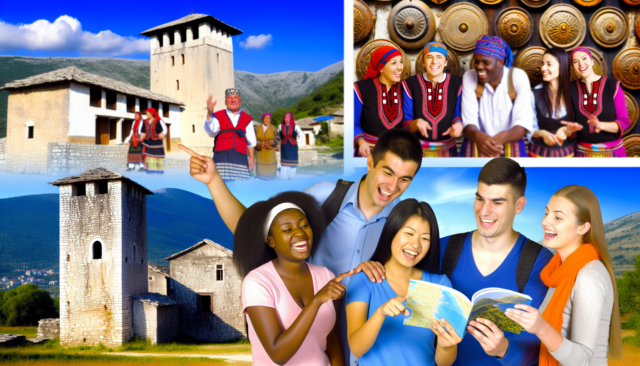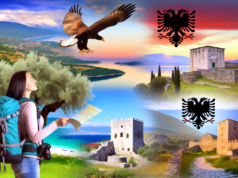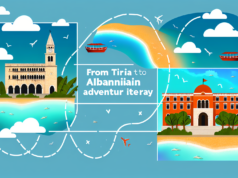
Albania is a hidden gem in the Balkans, offering stunning landscapes, rich history, and vibrant culture. As travel to this unique country increases, it’s essential for visitors to be aware of cultural etiquette and tips that will enhance their experience and foster positive interactions with the local people. Understanding these customs can go a long way in ensuring a respectful and enjoyable journey through Albania.
1. Greetings and Social Etiquette
Upon meeting someone in Albania, a firm handshake is a common greeting among men. However, when greeting women, it’s best to wait for them to initiate the handshake. In more traditional settings, it’s appropriate for men to greet women with a nod or a warm smile.
Albanian culture places great importance on showing respect, so addressing someone with titles such as "Zotëri" (Mr.) or "Zonja" (Mrs.) is advisable, especially in formal situations. When in doubt, a simple "Përshëndetje" (Hello) suffices.
2. Hospitality and Gifts
Albanian hospitality is renowned, and guests are often treated like family. If you are invited to someone’s home, it’s customary to bring a small gift, such as sweets, flowers, or a quality bottle of wine. It’s also polite to offer a compliment about the home or the preparation of the meal.
When dining at a host’s home, be prepared for a feast. Meals are often multi-course affairs, and refusing food may be considered impolite. Instead, try to sample everything offered to you, and express your gratitude throughout the meal.
3. Dress Code
The dress code in Albania can vary according to the location and occasion. While urban areas like Tirana tend to be more modern and relaxed regarding fashion, rural regions might still adhere to traditional styles. Generally, modest clothing is appreciated, especially when visiting religious sites. Women should consider wearing dresses or skirts that cover the knees, while men should avoid shorts in such places.
4. Religious Respect
Albania is a secular country, but its population includes significant Muslim, Orthodox Christian, and Catholic communities. This diversity should be respected, particularly in areas where religious practices are prevalent. When visiting mosques or churches, dress modestly, and observe local customs. For instance, women might be asked to cover their heads in mosques, and both men and women should remove their shoes when entering sacred areas.
5. Communication Style
Albanians are known for their straightforwardness and warmth in communication. Don’t be surprised if conversations become lively and loud; this is a reflection of their enthusiasm. However, it’s advisable to avoid sensitive topics such as politics and historical conflicts, particularly with older generations who may have lived through difficult times.
Using basic Albanian phrases like “Faleminderit” (Thank you) and “Tungjatjeta” (Good day) can endear you to locals and demonstrate a willingness to embrace their culture.
6. Tipping Practices
Tipping is appreciated in Albania, though it is not mandatory. In restaurants, rounding up the bill or leaving a 10-15% tip is a common practice. For taxi rides, rounding up to the nearest whole number is acceptable. Consider acknowledging exceptional service, as a small token of appreciation can make a significant impact.
7. Photography Etiquette
Albania boasts stunning landscapes and vibrant street scenes that visitors often want to capture. However, always ask for permission before photographing people, especially in rural areas and traditional settings. Some individuals may appreciate being asked, while others might prefer not to be photographed. When in doubt, it’s always better to seek permission.
8. Transportation and Navigation
While navigating Albania, it’s important to understand local transport options. Taxis are available in cities but ensure they use a meter, or agree on a fare beforehand. Buses and minibusses (furgons) are a popular mode of transportation and are often inexpensive. However, schedules might not be as strict as in Western countries, so patience is key.
Conclusion
Traveling in Albania offers a unique opportunity to explore a country rich in culture and natural beauty. By adhering to these cultural etiquette tips and respecting local customs, visitors can forge meaningful connections with the people of Albania, enhancing their travel experience. Embrace the warmth and hospitality of the Albanians, and you will leave with cherished memories and perhaps a lifelong appreciation for this remarkable country.













